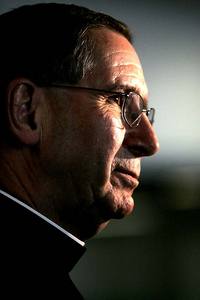…very often is a woman.
From National Catholic Reporter’s John Allen:
When talk turns to “women in the church,” the normal association in the public mind is with debates over the ordination of women to the priesthood. Because there’s been no movement on that front, the tendency is often to assume the “women’s question” is frozen in place.
In reality, however, the last few decades have seen a broad trend towards appointing women to positions of ecclesiastical leadership that don’t require sacramental ordination.
In the United States, for example, 48.4 percent of all administrative positions in dioceses today are held by women. At the most senior levels, 26.8 percent of executive positions are held by women.
On Thursday, another crack in the glass ceiling appeared in the Vatican itself: For the first time, a lay woman was appointed to one of the three key leadership positions inside a dicastery, or department, of the Roman Curia.
On Jan. 21, Pope Benedict XVI named Italian lay woman Flaminia Giovanelli, 61, a longtime official of the Pontifical Council for Justice and Peace, as the new under-secretary of that council.
Within each dicastery of the Roman Curia, there are generally three top positions: the prefect or president, who is generally a cardinal or an archbishop; the secretary, generally an archbishop or bishop; and the under-secretary, usually a monsignor or other cleric. Collectively, these three figures are known as i superiori, or ‘the superiors,” inside the office.
Giovanelli now joins Salesian Sr. Enrica Rosanna, also an Italian, as the only two women to hold a “superior”-level position in the Vatican. Rosanna was appointed in 2004 as under-secretary in the Congregation for Institutes of Consecrated Life and Societies of Apostolic Life. (That was generally held to be a slightly more significant move, since a congregation has greater authority in the Vatican than a council.) Giovanelli is the first woman who is not a member of a religious order to hold such a job.
Take a look at the link for more, including an interview with Giovanelli.

